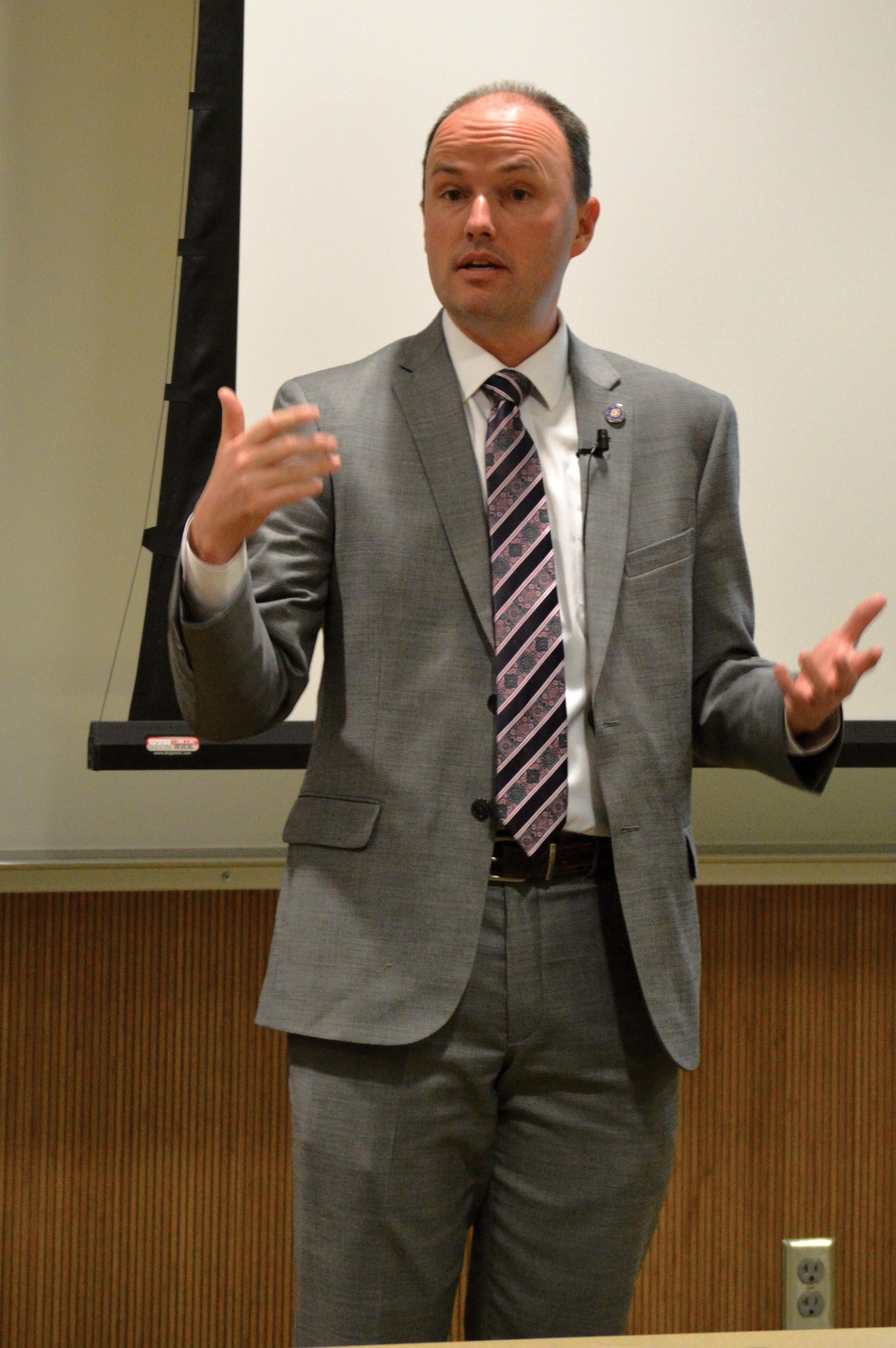Lt. Gov. Cox explains Utah politics in about 140 characters
Politicians are using social media even more as they begin to figure out how to utilize it as a resource, Lt. Gov. Spencer Cox told a group of USU students and faculty on Thursday as he spoke on the dos and don’ts of social media in politics.
“But the truth is, I believe, that 99 percent of them do it wrong,” Cox said.
Traditionally, politicians travel around the state and hold town hall meetings where they get to interact with people.
“With social media, I have the ability to have a town hall meeting everyday with thousands of people,” Cox said.
Cox was selected to replace retiring Lt. Gov. Greg Bell last October. He graduated from USU in 1998 with a degree in political science, then attended law school at Washington and Lee University in Virginia. He was serving as a state representative when Gov. Gary Herbert appointed him to be his right hand.
Being able to get instant feedback via social media on whatever he’s thinking is a very powerful tool, Cox said. However, there are some mistakes to watch out for.
He started with politicians who take methods from “old school media” and try to apply them to social media. According to Cox, this means most of the tweets from elected officials are press releases.
“So basically, they came up with a press release and they tried to cram it into 140 characters, or even worse, they can’t do it in 140 characters and so you just get the first part and have to click on a link to get the rest of it,” he said. “Nobody ever reads those.”
Cox said another problem politicians have is defining themselves by their title. Then they feel obligated to keep their title, and their priority simply becomes re-election.
“If you only care about the next election and doing whatever it takes to get elected, you’re going to end up with a political system like we have today in the nation, which I think is fundamentally broken,” Cox said.
Cox also warned against blatant self-promoting, engaging with people who just want to argue online, and being aware of the level of decorum expected of an elected official.
“It’s been fun to watch other politicians hurt themselves over social media, and I keep waiting for the time when I really blow it,” he said.
But in addition to these cautions, Cox added some words of advice. He recommended spending time getting to know the social platform and the audience in order to see what will succeed and what doesn’t. He said he’s noticed Twitter has a younger demographic than Facebook. Cox himself had a Twitter account for a year before he started tweeting much.
Cox also said for social media-users to be themselves, be comfortable with themselves, and be relevant. Many politicians have other people managing their accounts, but Cox prefers to be in charge of his.
On Jan. 15, Cox tweeted, “Observation: Politicians managing their own twitter accts equivalent to actors doing their own stunts. More fun and chance of injury.”
Andrea Allred works for the Institute of Government and Politics and helped arrange the lecture. She found Cox’s lecture both enjoyable and informational, as she helps manage the Twitter account for IOGP. Allred said IOGP uses the social media platform to promote the office’s goals of helping students get internships and events like Cox’s speech.
Her husband, Isaac Allred, also attended the lecture, even though he studies geophysics instead of political science. For him, Cox’s speech was good,
general advice about writing and how to communicate online. He said he’s tempted to join Twitter just to follow Cox.
For those interested in Utah politics, Cox recommends following @UTPolitics and using the hashtag #utpol. Cox is on Facebook and his Twitter account is @SpencerJCox.
@BurnettMaile

